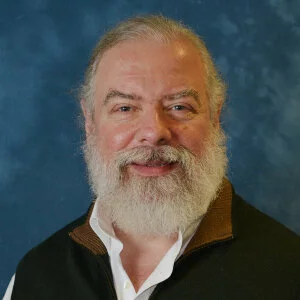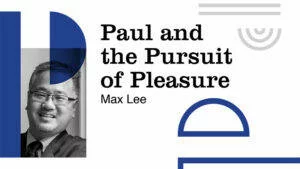Michael Dodds’s Unlocking Divine Action is an impressive and deeply learned attempt to deepen conversation about the relationship between divine action and scientific understanding of the natural world. Dodds claims, quite reasonably, (1) that important ways of understanding action and causation were lost in the transition from Aristotelian/Thomistic thought to what he calls “Newtonian science,” (2) that even recent attempts by Christian philosophers of science to reconcile divine causation with the sciences by drawing upon recent developments in both the sciences proper and philosophy of science fall short of the mark, and (3) that (only) the re-introduction of the full Thomistic understanding of causation and agency can provide an adequately rich framework for understanding divine action, and indeed of the natural world itself.
The book is remarkable in the scope of the philosophical views it engages, and in my view its greatest contribution is in its suggestions of the ways the richer panoply of Aristotelian/Thomistic notions of causation and agency can inform not only accounts of divine causation, but also of causation more generally within the natural world. It is a book that leaves me with much to consider.
Newton and the Philosophy of Science
In light of this, I feel a bit abashed that I am constrained by the length of my assignment to neglect the book’s richest contributions in order to make a case that, in his survey of what recent philosophy of science might do to correct the prejudice that modern science leaves no room for divine action, or at least for “interventionist” miracles, Dodds has neglected what is, in my view, the strand of recent philosophy of science most relevant to this topic—the interpretation of laws in terms of “causal powers”—and that this is, in fact, a view of science that is far closer to Isaac Newton’s own view than is that of “Newtonian” Empiricists like David Hume or of the Logical Empiricists. While my point is not about Newton scholarship, it is significant that Newton believed, for theological reasons, that it is quite important to believe in a God who works miracles, and did not see this as being at all in conflict with his science, and that in this respect he understood the implications of his science far better than did Newtonians like Hume. Only recently have philosophers like Cartwright,Nancy Cartwright, How the Laws of Physics Lie (Oxford: Oxford University Press, 1983); Nature’s Capacities and their Measurement (Oxford: Clarendon, 1989); The Dappled World: A Study of the Boundaries of Science (New York: Cambridge University Press, 1999). Dupré,John Dupré, The Disorder of Things: Metaphysical Foundations of the Disunity of Science (Cambridge, MA: Harvard University Press, 1993). and Mumford and AnjumStephen Mumford and Rani Lill Anjum, Getting Causes from Powers (Oxford: Oxford University Press, 2015).—who go entirely unmentioned in Dodds’s book, apart from one footnote reference to Dupré—recovered what I consider a more truly Newtonian conception of scientific laws as expressing causal powers, which I have also developed in different ways and applied to questions about the compatibility of natural laws with free will and miracles.Steven Horst, “Miracles and Two Accounts of Scientific Laws,” Zygon, 49(2), June 2014; Laws, Mind and Free Will (Cambridge, MA: MIT Press, 2011). I thus think that there is an important strand of recent philosophy of science that needs to be brought into dialog with Dodds’s impressive book.
Dodds notes, and I believe rightly, that most Christian philosophers addressing these topics have assumed that at least classical physics treats the universe as deterministic and closed under physical laws, and that, if one makes this assumption, Christian thinkers who respect science must approach divine action in a fashion that “respects” science either (a) by rendering it compatible with determinism of natural efficient causes, or (b) by looking to things like quantum indeterminacy or chaos to overthrow the classical assumptions, or (c) by looking to newer philosophical perspectives on science like emergence. I agree with him that these strategies are unsatisfying. My analysis of the underlying problem, however, is orthogonal to his, though whether they are incompatible is a question that exceeds the scope of this paper.
Laws, Natural and Scientific
The core of my diagnosis of the problem is this: the assumption that there is anything about a commitment to natural laws—even classical laws—that implies either determinism or the causal closure of the universe under physical laws is problematic, and we find a good early model of how to interpret laws differently in Newton himself,The seventeenth and eighteenth century were remarkable in the discovery of what we now call “scientific laws”—an expression first coined by René Descartes. and explored recently in “causal powers” interpretations of laws. So I submit there are at least two ways of having scientific laws and robust divine causation too: the truly Newtonian/causal-powers “short way” which holds there is no contradiction in the first place, and Dodds’s suggestion that we embrace a far richer view of causation and agency. These may well turn out to be compatible and capable of fruitful integration in the long run, and I hope that my paper will begin a conversation along these lines.
The seventeenth and eighteenth century were remarkable in the discovery of what we now call “scientific laws”—an expression first coined by René Descartes, who truly saw them as products of divine legislation. But there were alternative conceptions of how these should be interpreted. Leibniz followed Descartes in seeing them as products of divine decision, but further styled God as a cosmic clockmaker, and the universe as a perfect and autonomous machine that was deterministic in its operation once set into motion. (Though, unlike both Descartes and the Empiricists, Leibniz preserved a role for teleology and enteleches.) Hume viewed laws as exceptionless generalizations about how things actually happen, and the Logical Empiricists retooled this idea in logical form by treating them as true, universally-quantified claims about the real-world behavior of objects in nature. This Empiricist view easily leads to determinism if we make the small additional assumption that every object falls at every time under at least one natural law, because then its future behavior is entailed by a true universal generalization. And Hume, in particular, argued against miracles on the basis of his conception of laws.
The Causal Story
Newton was Leibniz’s great rival, and Hume and the Empiricists styled themselves “Newtonians,” and both led to the conclusion of a deterministic and causally-closed universe. But what were Newton’s own views? Newton clearly believed in miracles. He thought there were scientific reasons to think God must work them, but his belief was also grounded in his theology.Gail Christianson, In the Presence of the Creator: Isaac Newton and His Times (New York: Free Press, 1984); Margaret C. Jacob and Betty Jo Teeter Dobbs, Newton and the Culture of Newtonianism. (Amherst, NY: Humanity Books, 1999). Whereas Leibniz styled God an architect or clockmaker, Newton’s preferred metaphor was that of God as a sovereign, and he viewed it as important to sovereignty that a monarch exercise arbitrary authority. Both laws and arbitrary decrees outside of those laws are equally exercises of sovereignty, but a king who makes laws and then retires to the heavenly chamber is little more than a titular monarch who leaves the real power in the hands of parliament. But all this is at the level of theological metaphor. What of Newton’s actual science?
“Newtonian” Empiricists like Hume interpreted individual laws—say, the gravitation law—as universal truths about how things actually behave. But this is patently false. As philosophers of science like Cartwright have argued, nothing ever behaves exactly as the gravitation law specifies. But this is not because the gravitation law is a false universal claim about how things actually behave, but because there are always other forces at work as well, like inertia,Both laws and arbitrary decrees outside of those laws are equally exercises of sovereignty, but a king who makes laws and then retires to the heavenly chamber is little more than a titular monarch who leaves the real power in the hands of parliament. contact mechanics, and electromagnetism. Properly understood, the gravitation law cannot be a claim about the actual behavior of objects, but about one of several “causal powers,” “causal dispositions,” or “partial potential causal contributors” that plays a role in determining real-world behavior. I think Newton saw this quite clearly—in addition to the several basic laws, Newtonian mechanics requires something more to produce predictions of real-world behavior: the summation of forces through vector algebra. And Newton himself recognized that there were very likely additional forces (like those behind electricity, magnetism, and the growth and activity of living beings) that were not yet understood.
But the wider implication is this: when we discover a law like the gravitation law, we have indeed gotten our hands on something real and important that contributes to the causal mix (a dynamic rather than a kinematic principle), but each law speaks to only one such thing, and leaves us absolutely agnostic as to what other factors there might be in addition. The complete causal story would have to include all of the causal factors. Science is primarily interested in those that are nomic. But there is nothing about this conception of laws that rules out the possibility that there might be factors that are anomic as well, even though these might fall outside the scope of a science understood as confined to the lawlike. Nor need it rule out causal factors that are outside of nature entirely. A universe of truly Newtonian laws need not be a causally-closed universe. It is fully compatible with the possibilities of free will and “interventionist” miracles.
I have argued that this is the proper conclusion to draw from a “causal powers” view of laws like those of Cartwright, Dupré, and Mumford. And it helps make sense of how Newton himself seemed perfectly comfortable to posit a world with material objects that have active causal powers and also at the same time to see this as fully compatible with interventionist miracles. Miracles do not require a suspension, much less a violation of natural laws, but only causal powers in addition to those supplied by such laws. And this is true even if we are talking only of classical laws. On a properly Newtonian view, such laws are indeed non-probabilistic in their form, but they are not metaphysically deterministic. And, so far as I can discern, this is all at the level of talking solely about efficient causation.
There is a kind of criticism of Dodds’s book here: as comprehensive as it is, it leaves out what I regard as the most important relevant strand of recent philosophy of science. But what I am left pondering is what you might get if you put the two together: the best of post-Empiricist philosophy of science combined with an expanded account of causation and agency. Dodds argues that the contemporary conversation has left out the best of medieval insights. I argue that it has left out the best of both Newtonian and contemporary philosophy of science. Could we take the conversation further if we tried to put these two ideas together?








Comments
Be the first one to make a comment!